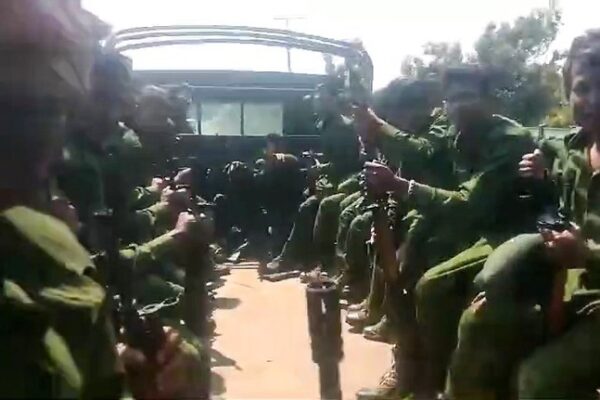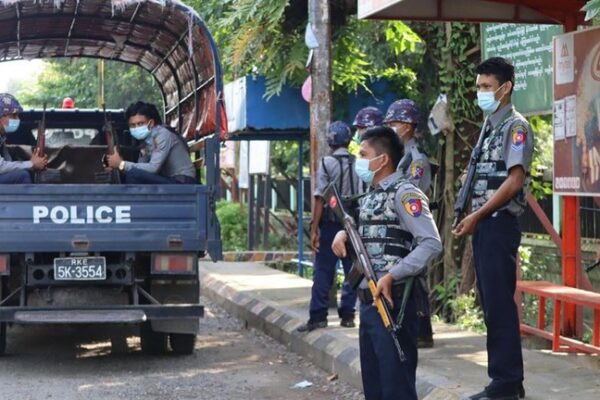
Blinken stresses ‘ironclad’ support for Philippines in South China Sea standoffs
U.S. Secretary of State Antony Blinken met with his Philippine counterpart in Manila on Tuesday to lay the groundwork for a summit between the leaders of the United States, the Philippines and Japan next month. U.S. President Joe Biden, Philippine leader Ferdinand Marcos Jr. and Prime Minister Fumio Kishida will meet in Washington on April 11 for trilateral talks that will focus on protecting a “free and open” Indo-Pacific region, according to the White House. Speaking at a press conference alongside Blinken, Filipino Foreign Secretary Enrique Manalo said the three-way summit aimed to capitalize on “complementarities” between the countries, notably in infrastructure, critical minerals, energy and maritime security. Blinken said that collaboration on defense and economic issues would only result in all three countries becoming stronger. “So that’s what the summit is about, as well as our work together to uphold international law,” he said. He and Manalo had discussed ways of streamlining the budding trilateral alliance “to make sure that even as we have this leaders’ summit, we have mechanisms in place to make sure there are things working together day in day out.” Blinken’s visit comes at a crucial moment in bilateral relations between the two allies, who have ramped up defense cooperation amid increasing Chinese assertiveness in the South China Sea, including in waters that fall within the Philippine’s exclusive economic zone. China claims nearly all of the South China Sea while dismissing the territorial claims of several Southeast Asian nations and Taiwan. “The alliance has never been stronger, but we not only have to sustain that, we have to continue to accelerate the momentum,” said Blinken, who was making his second trip to Manila as America’s top diplomat. He first visited the Philippines in August 2022, weeks after Marcos took office as president. Filipino activists protest at the Mendiola Peace Arch outside the presidential Malacañang Palace in Manila ahead of a meeting between President Ferdinand Marcos Jr. and U.S. Secretary of State Antony Blinken on March 19, 2024. (Jojo Riñoza/BenarNews) Manalo said he had thanked Blinken for Washington’s “consistent support,” particularly in regards to Chinese harassment of Filipino supply boats. In the most recent incident, four Filipino sailors sustained minor injuries earlier this month when China Coast Guard boats intercepted a supply vessel and fired at them with water cannons. “We discussed regional issues, especially the situation in the South China Sea, and I stated that the Philippines is committed to managing disputes in accordance with our national interests, the rules-based international order and international law, especially UNCLOS,” Manalo said, referring to the United Nations Convention on the Law of the Sea. “We reaffirmed our shared view that a strong and capable Philippines would make a formidable ally for the United States.” Blinken reiterated Washington’s “ironclad commitments” to defend the Philippines from outside aggression. He also said the two allies had shared concerns about Chinese “actions that threaten our common vision for a free and open Indo-Pacific,” including within the Philippine exclusive economic zone. “Repeated violations of international law and the rights of the Philippines – water cannons, blocking maneuvers, close shadowing, other dangerous operations – these waterways are critical to the Philippines, to its security, to its economy, but they’re also critical to the interests of the region, the United States, and the world,” Blinken said. On Tuesday, China’s foreign ministry spokesman Lin Jian said the U.S. had no right to interfere in disputes between Manila and Beijing and China would take the necessary actions to defend its territory. “Military cooperation between the United States and the Philippines should not harm China’s sovereignty and maritime rights and interests in the South China Sea, let alone be used to prop up the Philippines’ illegal position,” Lin told a regular briefing, according to a report from Reuters. Blinken is expected to meet with Marcos later on Tuesday. The Philippine leader recently returned from a trip to Germany and the Czech Republic in which he criticized Beijing’s expansive territorial claims and sought support for a free and open South China Sea. Camille Elemia contributed reporting from Manila. BenarNews is an RFA-affiliated online news organization.




